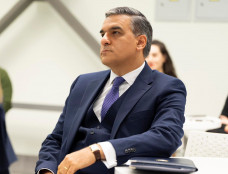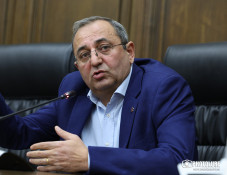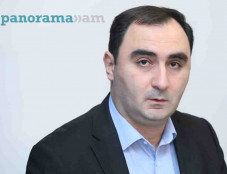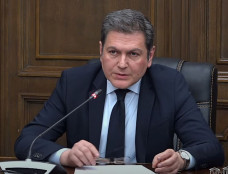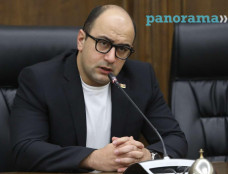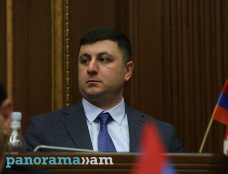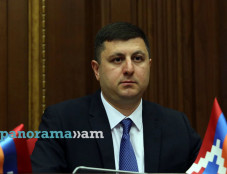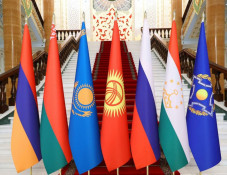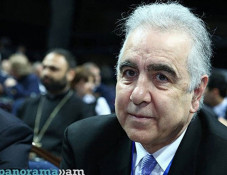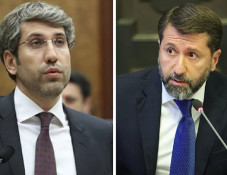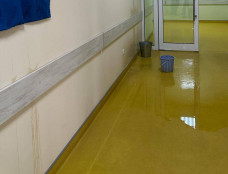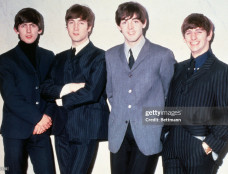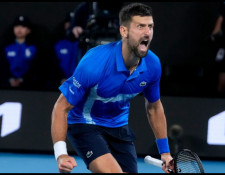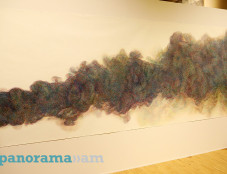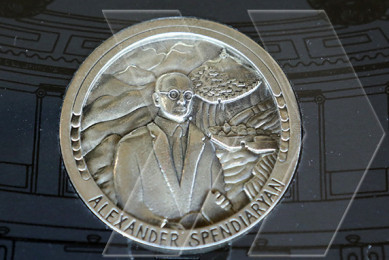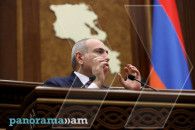
Is Armenia’s civil society sick or dead?
Civil society plays an important role in building a democratic society, and it needs to raise issues related to different spheres and try to get them solved, if, naturally, the authorities have a desire to see the problems solved.
The incumbent authorities in Armenia, particularly Nikol Pashinyan, claim that the government is committed to democratic values and that democracy is not an alien concept to them. However, nowadays civil society is not that active, its voice does not reach the authorities, because, according to the representatives of civil society, the problems and complaints voiced by them do not get any response from the current authorities.
Speaking to Panorama.am, Chairman of the Yerevan Press Club Boris Navasardyan outlined several reasons for the passivity of civil society.
.jpg)
"The first is inertia, which was formed during the revolution and immediately after it. Some representatives of civil society believed that this government already represented the interests of society, so there was no need to further pressure the authorities into making reforms. Since it has lasted for a while, inertia has already been formed," he said.
At the same time, he noted when they began to notice that the steps taken by the authorities failed to meet their expectations, it was already difficult to “get back into shape” that they had before the revolution.
According to Boris Navasardyan, the second reason is that the political interests of some civil society representatives came to coincide with the political interests of those who were in power structures and the well-known formula GONGO, government-organized non-governmental organizations, emerged.
"We had such organizations before the revolution, but their composition changed after it. That is, the civil society organizations that were not GONGOs before the revolution, in fact, adopted this workstyle after the revolution," he noted
According to him, the third reason is that, unlike the previous Armenian governments, the new government, strange as it may seem, was not open to a dialogue with civil society and refused to accept its important role,
"It was conditioned not by the fact that the previous authorities respected civil society, but by the fact that a certain dialogue with civil society was a precondition for good relations between the authorities and international organizations. Now, we see that this circumstance is not so important for the government, as they care little about what international structures want to see in Armenia. It may be due to the fact that our authorities exaggerate that there is a perception of Armenia among the international community as a country which has made a big step towards democracy," Navasardyan explained.
He stressed that this perception is changing for the worse, but the authorities are not yet aware of the importance of what is happening, and therefore they disregard the criticism voiced by NGOs.
"When you face such an attitude, you somehow lose heart and realize that no matter how active you are, there will be no result. Hence, there is certain apathy in the Armenian civil society," said the Yerevan Press Club head.
In Navasardyan’s words, all these developments, as well as the revolution, Covid-19 and war, resulted in reduced opportunities and willingness of civil society to work and cooperate with each other during this period, while separate organizations or a small group of organizations can hardly solve problems on their own.
He believes consolidation is necessary to increase the activity of civil society. "At least those civil society representatives, who in general think alike, do not necessarily strive for good relations with the authorities and are ready to enter into a conflict if necessary, should be united,” he said. “But such a conflict must also have a reason; it must be understood that by going into conflict, it is possible to have an impact. The authorities must feel that there is a consolidated force on this side, an institution which can influence and restrain public opinion. If it succeeds, the solidarity that existed a few years ago will be restored and, maybe, there will be results, but today Armenia’s civil society is increasingly split.”
Boris Navasardyan also noted that when NGOs working in various spheres of public interest protection have no levers of influence, it naturally affects those spheres. He found it difficult to name a specific area in which reforms and progress have been observed.
President of the Association for Sustainable Human Development Karine Danielyan found it difficult to answer the question of why civil society is passive today. According to her, this issue needs a special study.
(1).jpg)
"I don't feel that passivity. Maybe I'm wrong, but it's generally accepted that there must be a serious phenomenon in society for it to become active and get engaged," she said, stressing there are problems which require solutions, but there is no such phenomenon which would simultaneously affect many people and pose a threat to their lives.
Danielyan states people are tired of taking to the streets all the time to voice some kind of issues.
She also attributes the decreased activity of civil society to the fact that some of the formerly active members may now hold government posts.
"It has always been the case that when such people come to power, they rule out a wave of protests, but then life dictates its own rules – to swell the ranks with new people and become active,” Danielyan said.
Zhanna Aleksanyan, head of the Journalists for Human Rights NGO, does not share the view that civil society is inactive.
.jpg)
"The work of civil society is more visible now, especially over the past two years. Maybe at the beginning of the revolution I would agree with you; we believed that there would be reforms, the authorities would fulfill their promises, however, we saw that it all did not happen,” she stated.
In Aleksanyan’s words, if there was an opposition that would really raise the issues the society is most concerned about, it could be said that civil society is not that active. It is against this background, she claims, that civil society's statements and dissenting opinions about various phenomena are more visible.
She found it difficult to say why civil society representatives do not resort to street protest, as they did before.
"Perhaps the reason was the trust in this government. Now the post-war situation may prevent such actions, but I'm sure there will be protests if it continues like this,” Aleksanyan said.
According to her, now it is very difficult to achieve something. Maybe people and civil society trusted the authorities to some extent, but now they see that there is no change in any sphere.
"Nearly two years ago, civil society was pretty lost, and now it's being overlooked," she said.
Zhanna Aleksanyan said that only once did Nikol Pashinyan meet with representatives of civil society before the parliamentary elections, adding it was useless. According to her, perhaps it was the authorities who needed such a meeting before the elections.
"This is a disturbing and regrettable situation. After the war, so many families who lost their sons live next to us. Under these conditions, too, one does not feel the role of the state, nor do these families feel it," Aleksanyan said.
She stressed that she is not at all enthusiastic about the policy of the authorities, their statements, their failure to admit their mistakes and to accept the results of public debates, as well as their inability to draw conclusions. According to the human rights defender, after the war there were spheres where something had to be done, the NGOs themselves expressed readiness to cooperate with the authorities and help, but there was no reaction.
"The part of civil society that is active is having a hard time now, although it makes a small part. There is a certain feeling of powerlessness to change something, as before," said Aleksanyan.
Human rights activist Avetik Ishkhanyan is surprised by the silence of his former colleagues over various issues, as well as the severance of relationship with him.
.jpg)
"I can make some assumptions. One of them is that, in fact, they were not the bearers of these values, but simply chose a profession, because different areas of civil society – protection of human rights, freedom of speech, ecology – were a mission, not a profession. In my opinion, all of these were not values for them, but a profession. A profession is not a bad thing, but it is only a means of making a living," he stressed.
According to the human rights activist, not only civil society, but also international organizations remain silent concerning all developments in Armenia. "So the more likely version is that it is politics, they are the carriers of this policy. Part of this policy was also the handover of Artsakh to Azerbaijan,” he said.
Ishkhanyan claims civil society can “activate the order”. "When the very international organizations that have made a name for themselves as democratic start criticizing, they, too, will follow suit,” he noted.
Newsfeed
Videos





